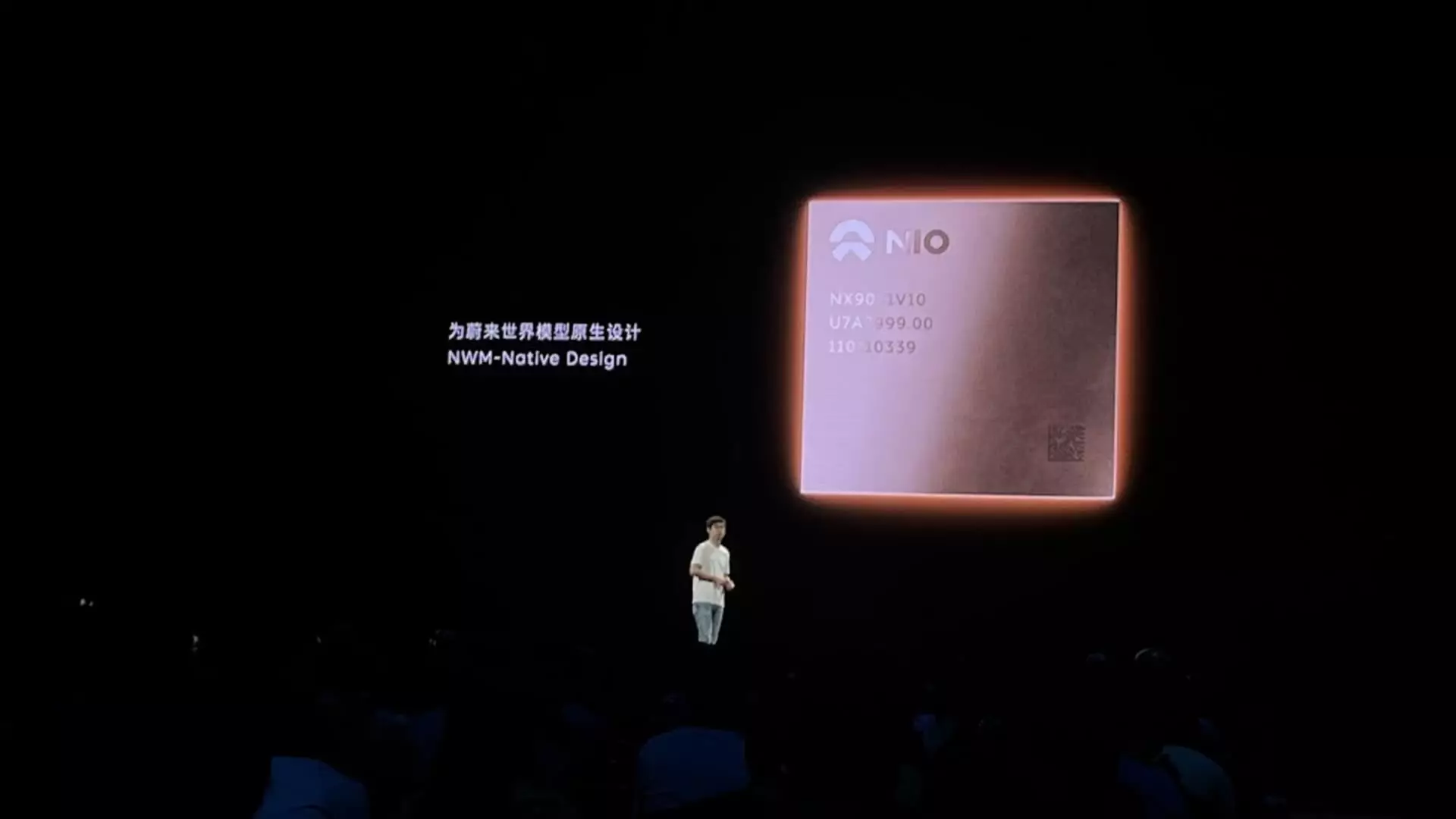Chinese electric car companies like Nio and Xpeng are ramping up their efforts to innovate in the highly competitive electric vehicle market. One of the key areas where they are focusing their attention is on developing their own auto chips to power advanced tech features like driver-assist functions. This move comes in response to the industry norm of relying on tech giants like Nvidia for automotive chips, which has been a lucrative business for the company.
The decision to design their own chips is driven by the desire to differentiate their products from competitors and offer unique features that are tailored to their brand. For instance, Tesla’s success with its own chip for full-self driving has inspired Chinese automakers to explore self-development of system-on-chip technology. This shift not only allows for customization of features but also reduces supply chain risks, especially in light of geopolitical tensions.
Nio recently unveiled its automotive-grade chip, the NX9031, which utilizes advanced 5-nanometer production technology – a first in the Chinese automotive industry. This breakthrough is a significant milestone that opens up new possibilities for intelligent driving systems in Chinese-made vehicles. Xpeng, on the other hand, has showcased its Turing chip, known for its superior driver-assist technology that is highly regarded in China.
Despite investing in in-house chip technology, Xpeng remains committed to its partnership with Nvidia for chip supplies. The strong relationship between the two companies and Nvidia’s expertise in the automotive sector provide Xpeng with a competitive edge in the market. By leveraging the best of both worlds, Xpeng aims to deliver cutting-edge technology to its customers.
The electric car industry in China is undergoing a transformation where semiconductors are playing a crucial role in the development of smart connected vehicles. As companies like BYD embrace new technologies like Horizon Robotics’ driver-assist chips, the importance of chips in the industry’s evolution is becoming increasingly apparent. This shift is a reflection of the industry’s commitment to innovation and staying ahead of the curve.
With the Chinese government’s support through incentives and subsidies, the electric vehicle market in China has experienced significant growth. The increasing penetration of new energy vehicles in the country’s auto market underscores the shift towards sustainable transportation solutions. Companies are not only focusing on building electric vehicles but also on setting new standards for technology in cars, such as digital key systems that enhance user experience and security.
Looking ahead, Chinese electric car companies like Xpeng are setting their sights on becoming global leaders in artificial intelligence-driven vehicles. By expanding their presence beyond China and exploring partnerships with tech giants like Alibaba Cloud, they aim to establish themselves as pioneers in the field of AI-driven transportation. This ambitious vision underscores their commitment to pushing the boundaries of innovation and offering cutting-edge solutions to customers worldwide.
The shift towards in-house chip production by Chinese electric car makers marks a significant turning point in the industry’s evolution. By investing in advanced technology and strategic partnerships, these companies are paving the way for a new era of intelligent, connected vehicles that are poised to revolutionize the automotive landscape.

